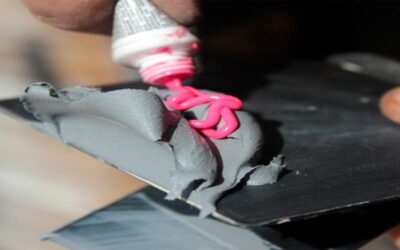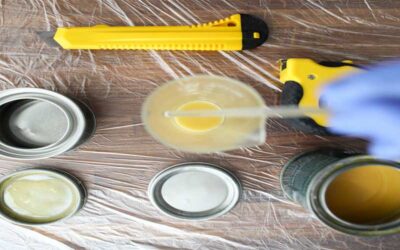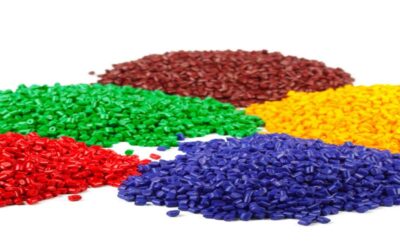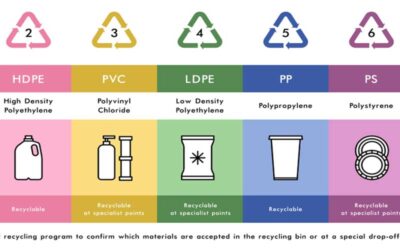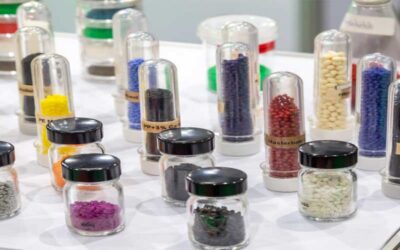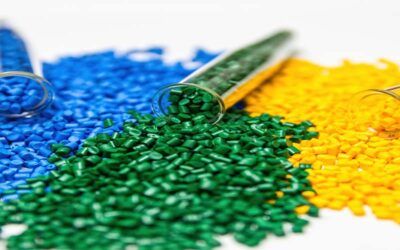Resin is mainly used as glue – to stick fibers together. In the art and jewelry industry, the resin is used for making furniture, trash bins, and various jewelry items.
Let’s learn what is Resin, its Definition, Properties, Function, History, Types, Advantages, Disadvantages.
Resin Definition
Resins are mixtures of organic compounds. It is a liquid compound that will harden under certain circumstances.
Resin is different from plastic as plastic is derived from petrochemicals; on the other hand, the resin is mainly derived from plants.
It can be said that resin is a form of unprocessed plastic and Solid resin is more versatile depending on how it can be formed.
History of Resin
The use of resin has a long history. Resin is a very unique compound. Amber is a kind of resin that occurs naturally. Some trees produce amber to protect their damaged part.
In Ancient times, resins are used in beverages and smoked. Greek people named the Resin ‘electron’ as they learned that rubbing amber could produce an electric charge.
The Mongols invented the world’s first composite bow which was bound together with natural pine resin. Around 1870 – 1930, scientists developed the very first synthetically-manufactured resins. Like trees, they protect their damaged part by producing amber, now manufactured resin is used to protect our floor, countertops, laminate, and making jewelry.
Types of Resin
There are various types of resin such as Polyester, Phenolic, Alkyd, Polycarbonate, Polyamide, Polyethylene, Epoxy, Silicone, Polyurethane, Acrylic, Polystyrene, Polypropylene, etc.
1. Polyester Resin
Polyester resins are framed from the response of dibasic natural acids and polyhydric alcohols. They are entirely adaptable and have fantastic protection from warmth, synthetics, and fire. They will in general be a minimal expense. They are utilized for the development, cover, auto-fix of fillers, skis, casting poles, plane and boat segments, coatings, beautifying extras, and containers.
A polyester resin can hold under 500 lbs. per square inch.
Polyester is more helpful for transitory fixes, or low-stress use. resin is more famous for specialty and gem making, due to its lower cost. Keep in mind, in any case, that you get what you pay for. Polyester resin has minor protection from dampness, is viewed as water-penetrable, and can crack without any problem. Follow the article to learn more about polyester resin.
2. Phenolic Resin
Phenolic resins are a kind of thermosetting resin. They are solid, warmth and effect safe, and have high protection from synthetic erosion and the infiltration of dampness. Phenolic resins are machined without any problem. They are utilized for resin impregnation, brake linings, electrical parts, overlay, glues for concrete, reinforced cement, and forms. Follow the article to learn more about Phenolic resin.
3. Alkyd Resin
Alkyd resins are thermoplastic polyester resins made by warming polyhydric alcohols with polybasic acids. They have great electrical and warm properties and great substance obstruction. They are minimal expense and utilized for electrical protection, electronic parts, clay fillers, and paints. Follow the article to learn more about Alkyd resin.
4. Polycarbonate Resin
Polycarbonate resins are thermoplastics for the most part created from bisphenol A and phosgene. They have a high refractive list, electrical and warm dimensional dependability, protection from staining, and protection from filtration. They are utilized for metal substitutions, wellbeing caps, focal points, electrical parts, photography film, and protectors. Follow the article to learn more about Polycarbonate resin.
5. Polyamide Resin
Polyamide resins contain an amide bunch as a repetitive piece of their sub-atomic chains. They are effortlessly formed, solid and safe, and lightweight. They have a low erosion coefficient and are scraped spot and substance safe. They are utilized for non lubricated heading, strands, gears, stitches, tires, watchbands, bundling, and jugs. Follow the article to learn more about Polyamide resin.
6. Polyurethane Resin
Polyurethane resins are copolymers composed of polyol and isocyanate segments. They are extremely adaptable when joined with different gums, and have a high film versatility and bond to substrates. Polyurethane resins additionally have a decent equilibrium of stretching and hardness. They are utilized for protection, elastomers, cements, and froth liners for dress. Follow the article to learn more about Polyurethane resin.
7. Silicone Resin
Silicone resins used to be made with sodium silicate and different chlorosilanes, however now they are frequently shaped with the less responsive tetraethoxysilane or ethyl polysilicate and a few disiloxanes. They have great warm and oxidative security and are adaptable and water repellent. Silicone pitches structure hard movies in view of their three-dimensional organization structure. They are utilized for elastic, overlays, embodied pitches, defoamers, and water-safe applications. Follow the article to learn more about Silicone resin.
8. Polyethylene Resin
Polyethylene resins are the most well-known kind of sap, with more than 100 million tons delivered every year. They have solid substance and steam or dampness obstruction and a serious level of adaptability. They are utilized for bundling for overlays and movies, compartments, link protection, coatings, toys, molds, linings, and lines and cylinders.
You utilize Thomas’ Supplier Discovery Platform to discover Suppliers of Polyethylene Resins. Follow the article to learn more about Polyethylene resin.
9. Acrylic Resin
Acrylic pitches are connected thermoplastic or thermosetting plastic substances made from acrylic corrosive, methacrylic corrosive or other related mixtures. They are clear with acceptable rigidity. Acrylic pitches are effective and UV safe. They are utilized for underlying and embellishing boards, cements, elastomers, coatings, signs, and clear tiles. Follow the article to learn more about Acrylic resin.
10. Polystyrene Resin
Polystyrene resins are fragrant hydrocarbon polymers produced using the monomer styrene. They are minimal expense and simple to create, with magnificent protection from acids, soluble bases, and salts. Polystyrene resins likewise have great clearness and adaptability. They are utilized for protection, pipes, froths, cooling towers, elastic, auto instruments, and dashboards. Follow the article to learn more about Polystyrene resin.
11. Polypropylene Resin
Polypropylene pitches are a sort of thermoplastic polymer resin that doesn’t contain BPA. They are dull and bland, with a low thickness and great warmth obstruction. They can be cleaned, so they’re frequently utilized with clinical hardware. Polypropylene resins likewise have great synthetic obstruction. They are utilized for toys, electronic parts, line and creation tubing, strands and fibers, and coatings. Follow the article to learn more about Polypropylene resin.
12. Epoxy Resin
Epoxy saps, likewise called polyepoxides, are a kind of responsive prepolymers and polymers which contain epoxide gatherings. They have amazing synthetic and warmth obstruction and solid attachment properties. They are utilized for overlays, glues, flooring, linings, propellers, and surface coatings. Follow the article to learn more about Epoxy Resin.
Where to Buy Resin?
Visit the Epoxy store to find Epoxy Resins for sale, the Resin store to find all other popular resins for sale, and the Accessories store to find the high-quality Resin Accessories to buy online.
Resin FAQ
1. What is a resin used for?
Resin is mainly used as glue – to stick fibers together. In the art and jewelry industry, the resin is used for making furniture, trash bins, and various jewelry items.
2. Does resin break easily?
No, it doesn’t break easily.
3. How dangerous is resin?
Resin is generally not toxic but poses a little threat if somehow touched with bare-handed or inhaled.
4. What is resin and how does it work?
Resin is a naturally produced organic compound that we get from plants. It can be used as an effective alternative to plastic.
5. Why is resin expensive?
Resin is a two-component system consisting of resin and hardener. By mixing them, a chemical reaction takes place and the liquid resin then hardens to a solid plastic.
6. What is the best resin for beginners?
Epoxy resin is the best option for beginners.
7. Why does my resin crack?
The main reason is that epoxy gets very hot while curing, for this it cures faster and unevenly. The changes in temperature during the pour causes expansion and shrinking, which is the reason for the crack in already cured areas.
8. Is resin better than plastic?
It depends on what you want to make. In some cases, resin gives better results such as making jewelry and plastic is good for making containers and other stuff.
9. Is resin bad for the environment? No resin is not that much worse for the environment as it is naturally produced.
10. Is resin Cancerous?
Tests done on animals in the lab show that the current version of epoxy resins caused skin cancer. But the newer epoxy resin contains very little epichlorohydrin, so it doesn’t cause cancer in animals or humans.
11. Can resin give you cancer?
The newer epoxy resin is not likely to give you cancer.
12. Is resin bad to breathe in?
Inhalation of epoxy resin doesn’t generally cause any harm but it is not good for health either. It may cause allergic problems.
13. Is resin art expensive?
Yes, it is expensive because the supplies of resin art are expensive.
14. What does Resin not stick to?
Resins do not stick to parchment or wax paper.
15. Can u put fresh flowers in resin?
No, because fresh flowers can decompose after covering them with resins.
16. What is the cheapest resin?
Epoxy resin is the cheapest and easiest to use.
17. Is resin better than block paving?
Resin is easier to maintain than Block Paving.
18. Can you use nail polish to color resin?
Mixing nail polish with resin is not a good idea to color resin.
19. What can I use as a resin mold?
You can use latex rubber, silicone rubber, silicone molds, etc but glass molds cannot be used as resin mold.
20. Why is my resin sticking to my mold?
Your resin is too hot. Resin generates heat while mixing with a hardener, excessive heat can melt the mold, and thus the resin sticks to the mold.
21. Is UV resin toxic?
Yes. UV resin is toxic because of its chemical properties.
22. Does resin break like glass?
No. It doesn’t.
23. Why is my resin smoking?
Heat is generated by the chemical reaction between resin and hardener used as epoxy cures. Epoxy heating out of control causes smoking.
24. What happens if resin gets on your skin?
Generally, contact dermatitis or skin inflammation is seen.
25. Is resin a hard plastic?
Not really. Plastic reflects, on the other hand, the resin is hard to emulate.
26. Is resin plastic toxic?
Resin is generally not toxic but poses a little threat if somehow touched with bare-hand or inhaled. Resins made from renewable raw materials are non-toxic and non-hazardous.
27. Does resin decompose?
Yes. Resin can decompose.
28. Is resin the same as plastic?
No. Resin is of a natural form, plastic is generally synthetic or semi-synthetic by nature.
29. What is a natural resin made of?
Resins usually are plant products consisting of amorphous mixtures of carboxylic acids, essential oils, and isoprene-based hydrocarbons which come from trees and shrubs.
30. Is resin vegan?
Yes, the resin is vegan
31. Can you die from resin?
Resin can not kill you unless you spend 10-20 years at a stretch around it.
32. Is resin bad to smell?
All epoxy resins generally have some kind of smell. This smell can be discreet and harmless, and also can be powerful and noxious.
33. Is it safe to drink from a resin cup?
Yes, it is safe.
34. Is resin poisonous to humans?
Pure epoxy resins and ArtResins are non-toxic.
35. Is resin toxic to dogs?
No.
36. What is the safest resin to use?
Total CAST is the most non-toxic resin.
37. How long does it take for the resin to stop smelling?
It takes 2 to 10 hours.
38. Is resin toxic when dry?
After being dry, epoxy is safe to touch, walk on, and place items on
39. Can you touch resin?
No. You can not touch resin without taking protection or wearing protective gloves.
40. What do I need to start a resin business?
Stirring Utensils, Mixing cups, Casting resin, Safety equipment, Wax paper, freezer paper, Resin molds or vessel, Resin colorants, Mold release.
41. How do I start working with resin?
Preparing resin workplace, Understanding resin safety, Purchasing proper resin supplies, Planning about what you are going to make, Mixing and pouring the resin, Letting the resin cure in a proper way.
42. Does Hobby Lobby have resin?
Yes. Hobby Lobby has resin.
43. Can you use glass as a resin mold?
No. glass does not work as a resin mold.
44. Can you put resin over paint?
Yes, you can use ArtResin epoxy resin over oil paint once it has dried thoroughly.
45. Does resin stick to Saran Wrap?
No. Epoxy does NOT stick to Saran Wrap
46. Can you Epoxy a rose?
Yes, you can.
47. Can you put silk flowers in resin?
Yes, you can.
48. How do you keep things from floating in resin?
You can do this by pouring in more layers of it.
49. Can I buy resin at Walmart?
Yes, you can.
50. Is casting resin the same as epoxy?
No, they are not the same.
51. Is there a cheaper alternative to epoxy resin?
Polyesters have an advantage over epoxy in that it is cheaper and great for casting deep molds.
52. How much should a resin driveway cost?
Prices will differ according to the quality of materials and location. The cost of resin driveways varies according to the square meter & location.
53. Is resin cheaper than block paving?
Yes. resins are cheaper than block paving.
54. Is resin better than tarmac?
Tarmac may be the better option if you are short on budget.
55. Can you use food coloring in resin?
Yes. you can.
56. What can I use to color resin?
Acrylic paints, Alcohol-based colors, Powders such as micas and eyeshadows, Glitters, Kitchen spices, Sidewalk chalk, Watercolor paints.
57. How do you make resin shiny?
Continuous polishing the resin until it is shiny and smooth
58. Can you put resin on resin?
Yes. you can.
59. How do you fix resin mold?
You can cure the crack by filling it with the needed substance.
60. When can I remove resin from mold?
After 12 hours
61. Is cast resin breakable?
Yes, the cast resin is breakable.
62. Why is my resin brittle?
It can be because of the wrong ratio of epoxy to hardener
63. Is resin the same as acrylic?
No, they aren’t the same.
64. What to do if you get resin on your hands?
You have to dip your hands into a bowl filled with salt or baking soda, remove the hands and then rub them slowly together. The resin will build up in your hands, forming tiny clumps gradually. The clumps help to remove the resin.
65. Can you wash resin down the sink?
No. You cannot pour spare epoxy resin down the drain. You should wipe the excess resin from your container and tools with a paper towel.
66. Is it bad to get epoxy on your hands?
Epoxy is an irritant and causes skin inflammation.
67. Is there a natural resin?
Yes, there are some.
68. What is a resin chemical formula?
C21H25ClO5
69. Can epoxy resin kill you?
No, it cannot.
70. Which resin is food safe?
Only when the resin is fully cured is it non-toxic or food safe.
71. Can you use resin on a cutting board?
Yes. you can.
72. Is resin safe for my body?
Yes, it is once it dries.
73. Why is resin dangerous?
It can cause irritation, toxic eczema, or sensitizer, and allergic contact dermatitis.
74. Is casting resin dangerous?
It can be dangerous if swallowed or inhaled.
75. Why does epoxy stink?
Because of the curing process of epoxy. Faster curing generates a stronger smell.
76. Can I pour resin outside?
Yes, you can.
77. Is resin art easy?
Yes, it is easy and interesting.
78. What is the best resin for crafts?
Epoxy resin.
79. Can you buy resin at Michaels?
Yes. you can.
80. Does Hobby Lobby sell resin molds?
Yes, they sell.
81. Does Home Depot sell resin?
Yes, they sell.
82. What material does Resin not stick to?
Resin does not stick to parchment or wax paper. Teflon, polyethylene, polypropylene, nylon, or Mylar.
83. Can I mix acrylic paint with resin?
Yes, I can.
84. Does resin last forever?
No, it doesn’t.
85. Does resin stick to cement?
Yes, it does.
86. Will Flowers rot in resin?
If there is moisture, the resin might not cure the way it should. For that, the flowers may rot overtime inside the resin.
87. Does glitter sink in resin?
Yes, It does.
88. What is the hardest casting resin?
Epoxy casting resin
89. How much does it cost to epoxy a basement floor?
It depends on the size of the basement. Costs to seal a basement floor range from $3 to $12 per square foot
90. How much does it cost to epoxy a table?
Depending on the size of the table, it can be from $50 all the way to $2000.
91. Can I use hot glue instead of resin?
Hot glue probably wouldn’t be a great choice.
92. Can you pressure wash a resin driveway?
Yes – you can jet wash a resin surface such as a resin bound driveway.
93. Can you lay a resin driveway yourself?
If you know the techniques and have the equipment, maybe you can. But it’s hazardous.
94. How much does a resin patio cost?
Resin driveway costs can be affected by the existing surface.
95. Do resin driveways crack?
Yes, the surface crack can occur.
96. Do weeds grow through resin driveways?
Resin surfacing is weed resistant.
97. Should I get a resin driveway?
The cost of installing a new resin driveway is reasonable and a good investment.
98. Can I use nail polish to color resin?
Yes, you can.
99. Can I use eyeshadow to color resin?
You can use your old or cheap eyeshadow to color in your resin.
100. Can alcohol ink be used in resin?
Yes, this is possible. Simply add a few drops of alcohol ink after mixing the resin and hardener.
101. Can I add food coloring to epoxy resin?
Yes you can
101. Why is my resin not shiny?
Dull epoxy is caused by excessive moisture. Specifically, moisture from humidity in the area where the epoxy was applied or excessive moisture in/on the concrete application surface.
102. Does resin dry without a hardener?
Well no, it will not harden. It might gradually become dry but that depends on the resin.
103. Why is my resin flexible?
Some resins can be flexible after the full cure.
104. Can you pour resin over sand?
Yes, you can pour epoxy over sand or glitter.
105. How do I get resin out of my hair?
It can be removed with something oily, for example; vegetable oil, coconut oil or peanut butter. If nothing else works, you should try alcohol, baking soda, or nail polish remover.
106. Why does my epoxy have dimples?
Dimples can occur for the temperature fluctuations in the room while curing during the 1st 24 hours.
107. Can I use the plastic mold for resin?
You can use any mold that is made for resin casting.
108. Can you pour the resin into glass?
Glass does not work as a resin mold.
109. Is resin the same as epoxy?
Epoxy resins are for coating applications. On the other hand, casting resins are for casting applications such as molds, figurines, and jewelry. The difference between the two is the intended use.
110. What is the strongest resin?
Epoxy resins are the stronger form of all resins.
111. Is resin toxic to touch?
The pure epoxy resins are non-toxic, the risk of damage caused by ingestion of epoxy resin is not that much.
112. Is resin toxic to the skin?
Not always. Once it’s dried properly, it can cause no harm to the skin.
113. What removes resin from the skin?
Butter, any type of oil, soap, etc.
114. Can you rinse epoxy in the sink?
No. You cannot.
115. Is photopolymer resin toxic?
No. They are nontoxic.
116. Why is resin so expensive?
Epoxy is generally more expensive than resin, for its strength.
117. Can you buy resin at Walmart?
Yes, you can buy resin at Walmart
118. How much will a gallon of epoxy cover?
One gallon of half a gallon resin and half of the gallon hardener will cover 12 square feet at a thickness of 1/8 of an inch.
119. Is epoxy a glue?
Epoxy is a type of adhesive that forms which can be used as glue.
120. Why resin is used?
Resin is mainly used as glue – to stick fibers together. In the art and jewelry industry, the resin is used for making furniture, trash bins, and jewelry items.
121. Can you eat off resin plates?
Cured ArtResin can be safely used as a plate.
122. What resin is food safe?
ArtResin Epoxy Resin is safe for food.
123. Can you resin food?
Yes, you can.
124. Is a resin driveway expensive?
Yes, they are. Resin-bound driveways are more expensive than block paving.
125. Can you do epoxy flooring yourself?
Yes, but it can be hazardous and dangerous too.
126. Is resin smell toxic?
Breathing highly concentrated resin fume can irritate the respiratory system and lead to sensitization.
127. Are UV resin and epoxy the same thing?
No, they are not the same.
128. Can resin fumes kill you?
It cannot really kill you unless you spend like a constant 10-20 years around it.
129. Can you use resin indoors?
Yes, you can.
130. Do I need to wear a mask when working with resin?
Yes, you need to wear a mask.
131. Does resin stick to aluminum foil?
The resin will adhere quite well to the aluminum foil.
Conclusion
Resin is a versatile product. From household uses to electronics, construction industries, we can see the use of resin. The functions of epoxy resin are shown in many places and areas.
I believe you have got a clear concept about the Resin Definition, Properties, Function, History, Types, Advantages, Disadvantages.


